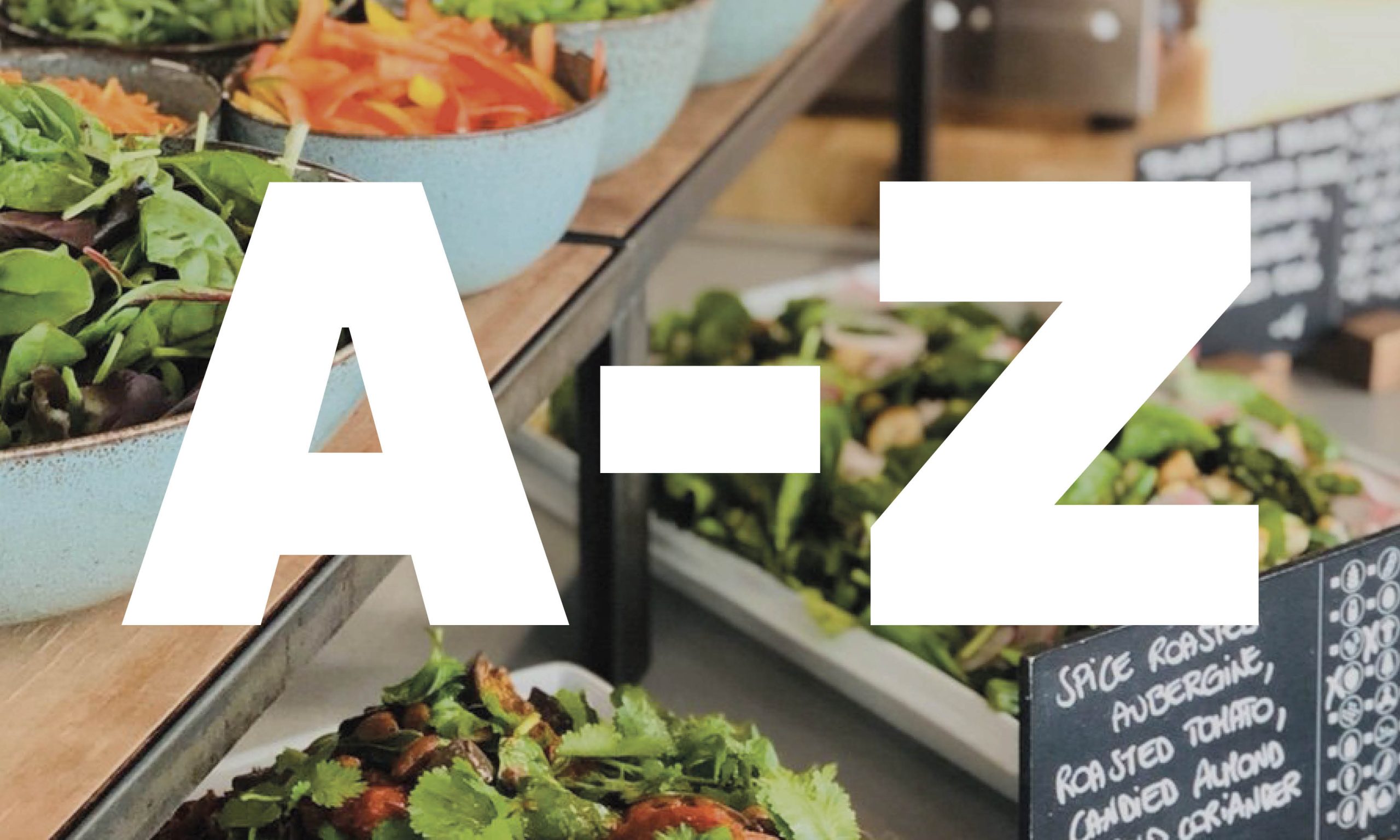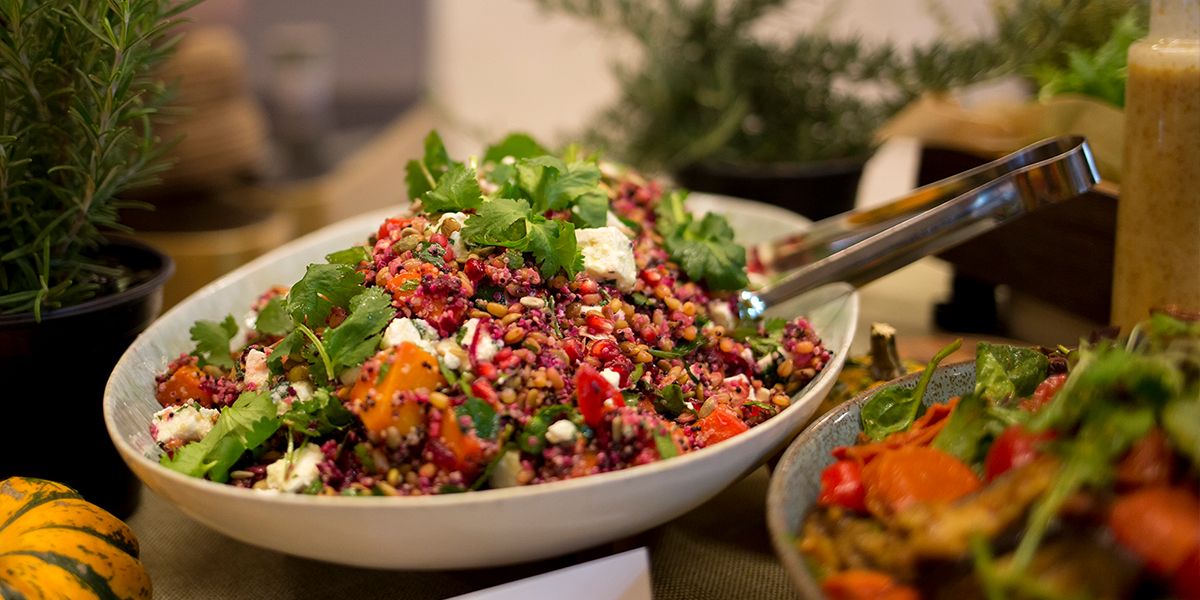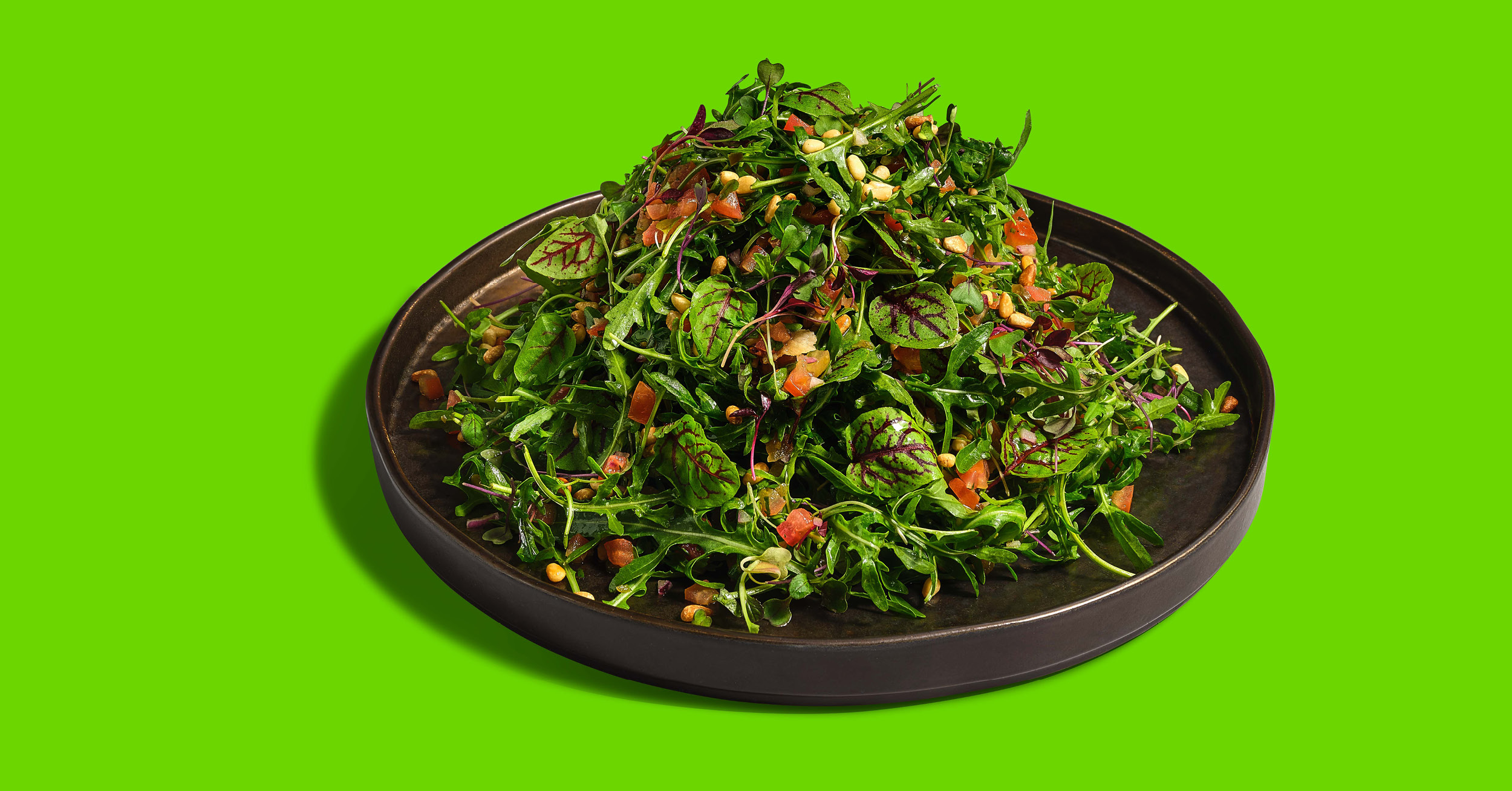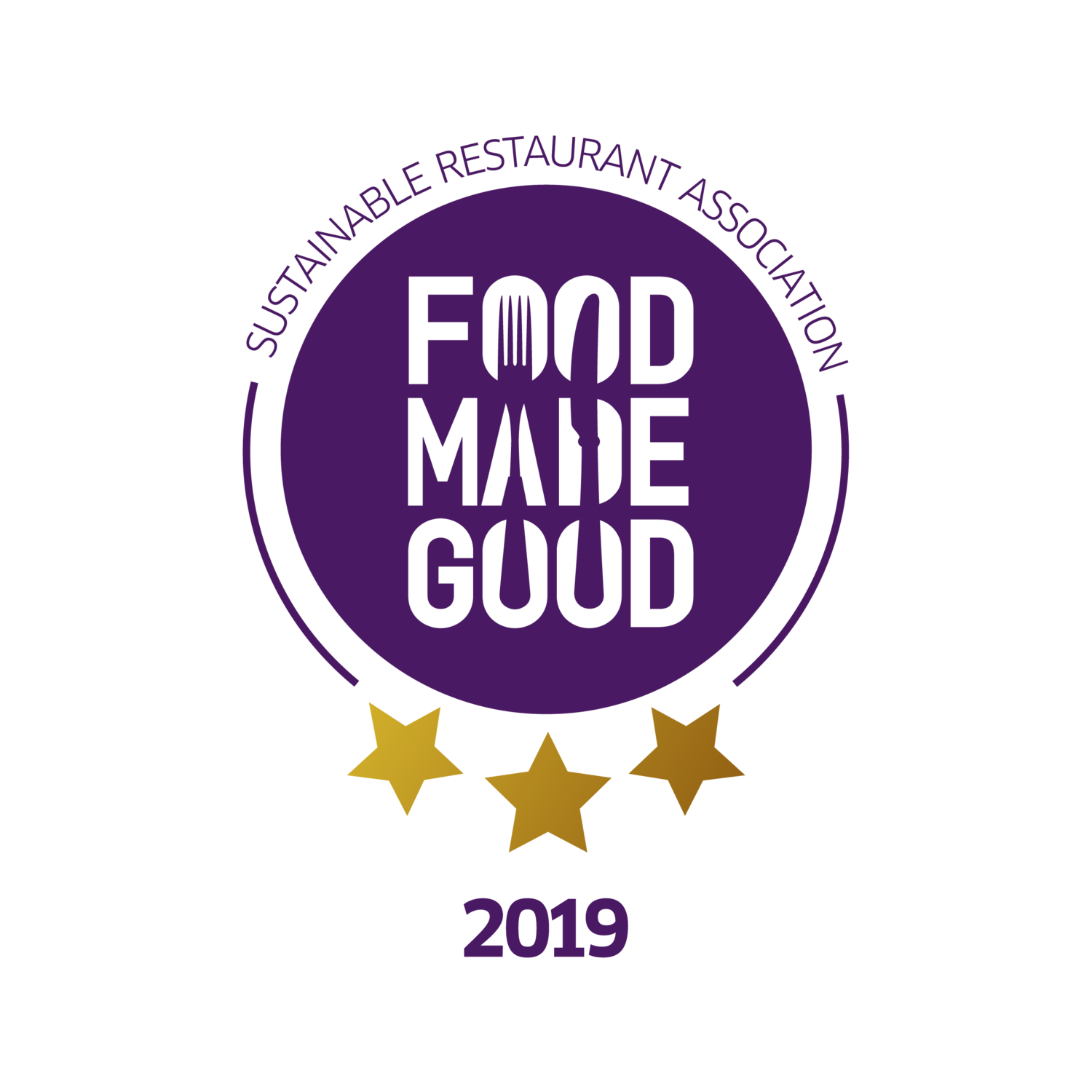At Fooditude, we have always believed in treading lightly on the earth and limiting our impact on the environment. To that effect we have developed an extensive sustainability policy, undergone several assessments and gained accreditations with the Sustainable Restaurant Association and the Planet Mark.
As we sat down to revise our staff sustainability training earlier this year, we thought why not share some of the most commonly used terms in sustainable catering with you!
Download our PDF version >
Alternative energy
A term usually referring to non conventional fuels used as an alternative to fossil fuels. The EU specifically requires these fuels to contribute to decarbonisation. In catering, the alternative fuels you are most likely to come across are: biodiesel, chemically stored electricity such as batteries of electric vehicles, vegetable oil and propane.
Anaerobic digestion
It is the process by which organic matter such as food and animal waste is broken down by microbes in a sealed container. It produces a methane rich gas (called biogas) which can be used as an alternative to fossil fuels and a nutrient rich digestate which can be used as fertiliser.
Aquaponics
Aquaponics is the system of agriculture that uses nutrient rich water from aquaculture (farming of fish, shellfish, crayfish etc in tanks) to feed plants grown using hydroponic systems (cultivation of plants in water) by using bacteria cultures that convert ammonia to nitrates.
Biodiesel
Biodiesel is a diesel fuel derived from plant or animal sources by chemically reacting lipids with alcohol turning it into esters. Waste oil from cooking is a good source material for biodiesel. Fooditude’s oil supplier, O’hara oils also collect our waste to turn it into biodiesel. It is compatible with existing diesel engines and can easily be used as a replacement to conventional diesel.
Biodiversity
Biodiversity is simply the biological variety and variability of life on earth and has a direct impact on climate change. In catering, chefs should think about their impact on biodiversity – e.g. not purchasing ingredients that are a direct result of overfishing or intensive farming.
Biodegradable
Any objects or materials that can be broken down or decomposed completely by bacteria and other microorganisms naturally, thereby avoiding pollution. In catering we often seek these materials for packaging.
Biodynamic
A holistic, ethical and ecological approach to organic farming that incorporates regenerative farming techniques, livestock management and astrological considerations. Often used in the production of wine.
Carbon footprint
The total amount of greenhouse gas emissions created and caused by an individual, event, organisation or product or service. The term usually describes environmental impact.
Carbon neutral
Carbon neutral status is achieved when the amount of GHG (greenhouse gases) emissions produced by an operation is the same as the amount of GHG removed from the atmosphere by the operation itself or by the purchase of offsets, effectively meaning you aren’t adding any net additional emissions to the environment.
Carbon negative
Taking carbon neutral one step further, carbon negative can be achieved when the amount of CO2 emissions removed from the atmosphere exceeds your own CO2 emissions. This means, you are actively helping reduce CO2 in the atmosphere.
Carbon offsetting
Carbon offsets are investments in various environmental projects that help with reduction of emissions of CO2 and other GHG’s in order to compensate for emissions made by a business / activity elsewhere – eg. reforestation.
Chain of custody
This is a document outlining a chain of ownership and transportation of a particular product from supplier to end user. Chain of custody is particularly important to trace source of ingredients e.g. game hunting or fishery.
Circular economy
An economy / system designed to promote resource efficiency, where materials are used in a way that benefits the environment, businesses and society; eliminates waste and pollution and retains and regenerates the materials being used.
Clean energy / renewable energy
Clean energy is derived from sources that do not emit any pollutants. Renewable energy on the other hand is derived from sources that can be naturally replenished and also does not emit any pollutants.
Climate change
Changes and degradation to the global and regional natural environment and weather patterns due to the effects of modern living and industrialisation – particularly from increased emissions of carbon dioxide and other greenhouse gases. This could be in the form of excess heat or cold conditions, the formation of hurricanes and other weather phenomena. These changes were previously only (and wrongly) attributed to global warming.
Composting
The process of natural decomposition of plant and food waste. Usually carried out at small or large scale, composting allows for safe disposal of food waste and the byproduct makes an excellent fertiliser. Certain plant based materials like PLA used in packaging are compostable under the right conditions. In catering, composting is often used to process food waste.
DEFRA
Department for Environment, Food and Rural Affairs – the UK Government’s arm with a wide remit responsible for safeguarding the natural environment, supporting the food and farming industry, and sustaining a thriving rural economy.
Direct trade
Direct Trade refers to sourcing ingredients — particularly cacao, coffee, tea etc, directly from farmers. Often this is done to bypass certification schemes such as fairtrade, but it could mean the farmers are better compensated and are eliminating costs of fees associated with being certified. This requires large levels of trust in the supply chain.
Ecotourism
Travel to natural areas with a view to conserve the local environment or benefit the local community in a sustainable manner.
Emissions
Emissions in a sustainability context refer to the greenhouse gases emitted from vehicular, industrial, agricultural and domestic sources.
ESG
This acronym stands for the reporting of intangible data around a company’s environmental, social and corporate governance. Such data sets are used to determine the environmental or societal impact of an organisation and its financial value to investors.
Fairtrade
Fairtrade is an ethical economic certification to offer fair and equal compensation to farmers and is mainly used in case of previously exploited crops such as coffee, cocoa, cotton, cane sugar, tea etc. The certification system guarantees: a set (fair) price for products that fulfil certain quality specifications, further incentives for businesses that invest in social and environmental projects, and an assurance to farmers about sales. The products are labelled with a mark that signifies an ethical origin. The certification scheme is complex and costs farmers and buyers – often suppliers work directly with farmers to bypass this scheme (see above – direct trade).
Farm to Fork
A movement designed to educate people about sustainable eating which promotes the use of local food, traceable back to the farms it comes from at food establishments or even homes. The Farm to Fork movement has taken several forms such as the appearance of names of farms on restaurant menus, an increased interest in local farmers markets, and a more transparent food distribution system. The movement is concurrent with the increased focus on sustainability and local produce.
Food miles
The number of miles food has to travel from farm to the end user. Usually this term is used in the context of eating locally sourced produce.

Free range
Refers to a form of ethical animal husbandry where animals / birds are allowed to roam and graze outdoors freely through at least a part of the day and not be confined in limited spaces. The definition for this space and amount of time varies in different countries.
Global warming
Global warming is the increase in the atmospheric temperature owing to human activities – particularly the emission of greenhouse gases.
Greenhouse gas / GHG
Greenhouse gases are the gases that absorb, trap and radiate heat causing a greenhouse (warming) effect. The presence of an excess of these gases in the atmosphere (such as water vapour, carbon dioxide, carbon monoxide, nitrous oxide, methane and ozone) could cause a rise in atmospheric temperature.
Hydroponics
A type of farming / horticulture that involves growing plants (particularly in urban areas) in water without using soil. These are quite popular in urban areas where you can still grow something without the need for land.
Intensive farming
Harmful farming practice that focuses more on yield of the crops by using chemical fertilisers and causes damage to the soil and local ecosystem.
Kerbside collection
Common waste and recycling collection offered by local authorities – collected from kerbs – often used to gauge recycling uptake and credentials.
Mono cropping
Mono cropping refers to ingrowing only one type of crop on a particular piece of land or region over several years without any rotation – while this may increase yield in the short term, this is harmful in the long terms as it leads to depletion of minerals from soil and could cause erosion.
Net Zero
Net Zero is similar to carbon neutral in principle, but Net Zero requires definitive plans from organisations and governments to reduce carbon and GHG emissions. Net zero status is achieved when Scope 1 and 2 emissions are brought down to zero and Scope 3 emissions reduced significantly and then use of offsetting of the CO2 / GHG emissions elsewhere, so the emissions and offsets together tally up to ‘zero’. Currently most governments and organisations are working towards Net Zero in 2030 / 2050.
This resource from the Planet Mark helps understand Net Zero a lot better.
Nose to tail
The traditional way of eating where no part of an animal was wasted -including offals. This style of cooking is promoted by chefs like Fergus Henderson in the UK.
Organic
Organic farming is the practice of growing crops and rearing livestock with natural methods and without the addition of any chemical fertilisers, pesticides or artificial chemicals.
Overshoot Day
Overshoot day is the date when human consumption of earth’s resources for a given year exceeds what the earth can regenerate in the year. A campaign titled #MoveTheDate has been launched to help move this date forward every year. In 2021, Overshoot Day was on the 29th July. In 2022, it is predicted to be on the 28th of July, which demonstrates the urgent need for positive climate action.
https://www.overshootday.org/about-earth-overshoot-day/
PLA
Polylactic acid (PLA) is a popular and economical packaging material derived from renewable sources, and is compostable under industrial conditions. It is currently used in popular brands of takeaway / single use packaging.
Plant based
Plant based foods are foods with the majority of its ingredients derived from plants but could include some products of animal origin. Currently this term is popularly used to refer to meat alternatives, but it cannot always be used to describe a vegan product.

Provenance
Provenance is the origin of food – i.e. where a particular food was grown, raised, caught or manufactured and also if any specific processes or methods were used in the manufacture. Information on provenance is usually important to prove that certain food products are local, seasonal or environmentally responsible.
Rainforest Alliance
An internationally recognised organisation working with farmers, organisations and communities to preserve forests, conserve wildlife and cultivate sustainable livelihoods. This certification marks responsibly grown produce.
Red tractor assured
Red tractor is a British farm and food assurance scheme that ensures traceability, safety and care in farming standards. In terms of meat, the mark also ensures high welfare standards. To clients, this means, any supplier using Red tractor assured produce offers food with good welfare standards.
Regenerative farming
A conservation approach to farming which focuses on topsoil regeneration, increasing biodiversity, water conservation and other sustainable agricultural practices for enhancing the health and vitality of farm soil.
Responsible business
A business that has a positive impact on the society and the environment in which it operates.
Scope 1, 2 and 3 emissions
This is a system for identifying GHG emissions from across the business while working on Net Zero or Carbon Neutral targets. The scope 1 refers to direct emissions originating from the business operation and sources controlled by them. Scope 2 refers to indirect emissions originating from the generation of purchased energy, from a utility provider. And, scope 3 refers to indirect emissions originating from the value chain – right from sourcing and suppliers all the way to how their products are used when sold to a consumer. With most carbon reporting schemes, it is mandatory to report data for Scope 1 and 2. However Scope 3 is often the one with the largest impact and is the hardest to control. In our business, scope 1 emissions relate to the kitchen and vans; scope 2 emissions relate to the gas, electricity consumption at The Mothership and Scope 3 emissions relate to our suppliers, how we deliver our service and also the food wasted across the business.
Social enterprise
A traditional, responsible business that aims to make a profit but reinvests it to create social change.
Soil Association
Charity organisation which focuses on the way we eat, farm and care for the natural world, they also run an organic food certification scheme in the UK.
Sugar tax
Sugar tax is a levy on soft drinks and beverages with more than 5g or 8g of natural or added sugar per 100ml. This tax supports a 2018 healthy eating / obesity reduction campaign. Several popular brands of soft drinks changed their formulations in response to this tax and it also led to several healthier challenger brands coming into the market. The proceeds from the levy will be used to fund several school sporting projects and breakfast clubs.
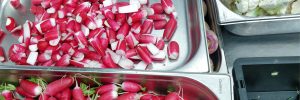
Surplus food
Surplus food is all the food that is fit for consumption but not used or not sold at farms, shops or food service establishments which could potentially go to waste.
Sustainability
The UN defines sustainability as: “meeting the needs of the present without compromising the ability of future generations to meet their own needs”. In the simplest terms it is the human ability to set processes and actions which help maintain an ecological and economical balance.
Sustainable Development Goals
All members of the UN adopted ‘The 2030 Agenda for Sustainable Development’. At the heart of this agenda is a framework of 17 goals, which would help the world achieve sustainable development – which includes ending poverty and other deprivations, strategies that improve health and education, reduce inequality, and spur economic growth – all while tackling climate change and working to preserve our oceans and forests. Fooditude’s sustainability policy identifies the sustainable development goals we’re working towards.
Sustainable Restaurant Association
The Sustainable Restaurant Association is a not for profit, membership organisation which helps businesses in the hospitality sector become more sustainable. They have created a framework to help businesses assess their sustainability efforts – from supply chain and processes to community engagement and environmental impact.
Traceability
Traceability refers to the ability to track information about a product from its origin through its entire supply chain. It helps prove provenance of the product and allows manufacturers and consumers to verify sustainability claims.
Urban farming
Urban farming is a blanket term referring to farming in small areas in urban regions. This can include gardens, kitchen gardens, household plants, vertical farming, hydroponic farming etc. Usually produce from urban farms is for self consumption or for distribution or sale locally.
Vegan
A vegan diet and lifestyle seeks to completely exclude all animal, seafood and insect based products 100% of the time.
Zero waste
Methods of responsible production that completely preserve resources. Instead, zero waste methods reuse / recycle materials, without creating waste as a byproduct.
Zero Carbon / Zero emissions
Any process that causes or results in no net release of carbon dioxide or other GHGs into the atmosphere. This may be possible theoretically, but currently, there are very limited technological advances in this area.
We hope you have enjoyed reading our guide. Thought we missed a term? Email us on marketing@fooditude.co.uk and we’ll be sure to add it here!
